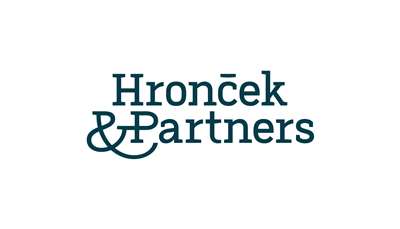Succession in family businesses is often accompanied by difficult tasks, many of which are burdensome for company management and may not be directly related to strategic issues concerning the company's growth. The gradual transfer of a company means that management must urgently determine the transfer of responsibilities, especially in the area of operations, so that the company's management can fully focus on the company's vision.

Many successful Slovak companies are family businesses, some with a multi-generational tradition of entrepreneurship. On the other hand, according to available studies, only 30% of all family businesses survive beyond the second generation, only 10-15% survive beyond the third generation, and 3-5% survive beyond the fourth generation. Despite many other challenges that family businesses face, one of the most difficult challenges is succession in family businesses due to the high risk of the company ceasing to exist.
What is the value of your company?
Before taking over a family business, it is very important to know its true value. Money is a sensitive topic in itself, which can be even more difficult to discuss within a family circle.
There is a widespread belief that the value of your company is based solely on its revenues and profits. However, the opposite is true, and your company may have a different value. According to the Commercial Code, a business is understood to be a set of tangible, personal, and intangible components of business. Tangible components are represented by real estate, machinery, technological equipment, office equipment, etc. Personal components are the structure and qualifications of employees. Intangible components are rights, such as the right to a trade name, industrial property, but also the good reputation of a legal entity, trade secrets or know-how. All these components together create the value of the business, which can be monetized when the company is sold. When selling a company, it is essential to take into account all of its components, as the invisible (intangible) ones can also represent significant value.
Mandatory expert opinion
In connection with the above, the correct solution when determining the value of your company is to leave this task to experts – appraisers. An expert opinion is mandatory if a commercial company changes its legal form to a commercial company or cooperative, the establishment of which requires the contribution of partners' capital to the commercial company. In other cases, an expert opinion is voluntary, but it provides a starting point for determining the value of the business more precisely.
Options for determining the value of a company
In general, there are four main methods for determining the value of a company in the Slovak business environment: the asset principle, the comparative principle, the income principle, and the combined principle. In the asset method, the value of a company is determined purely on the basis of its tangible assets, with the company's liabilities deducted. Although this method is simple and straightforward, it does not take into account the company's future earnings or intangible assets. The comparative principle is a method in which a company is compared with other similar companies that have been sold at a given time. Again, the advantage of this method is its relative simplicity, but the data on the companies being compared may not always be accurate or fully available. Under the income approach, the value of a company is determined, as the name suggests, on the basis of expected future income. The advantage is that it takes into account the future growth of the company, but it is not always possible to comprehensively calculate predictions of future revenues. In practice, a combined principle is often used, which combines elements of the previous methods. The combined principle is more complicated, but it allows for a better understanding of the true value of the company.
This article is an introduction to the issue of family businesses and succession. We will publish further articles on this topic in the coming weeks.
